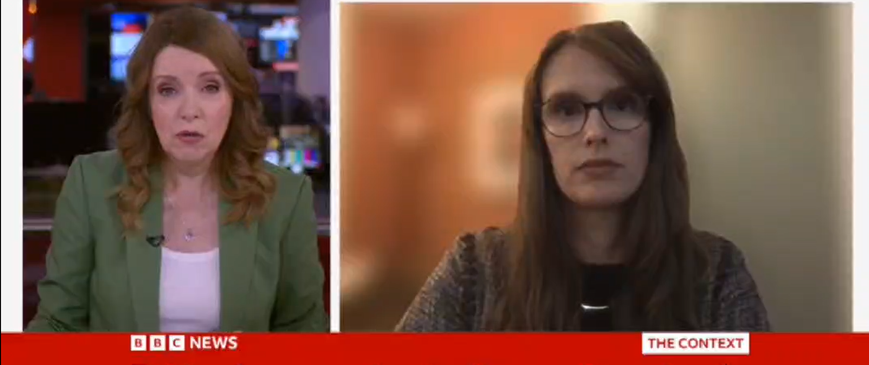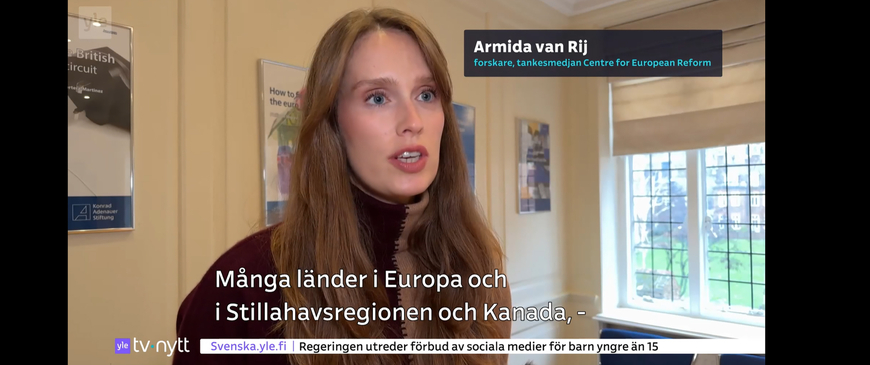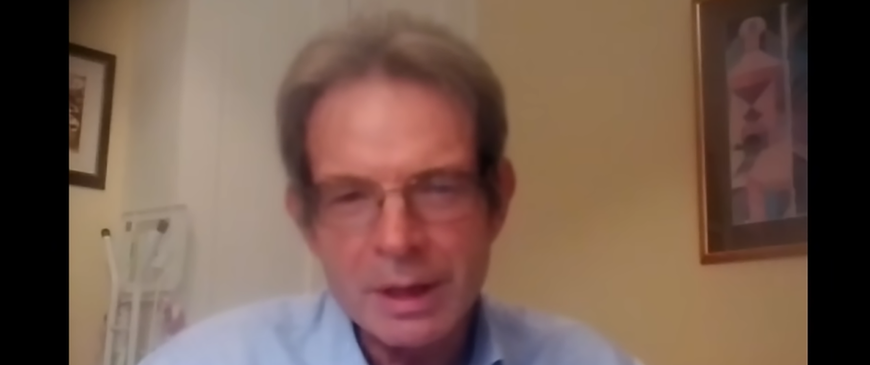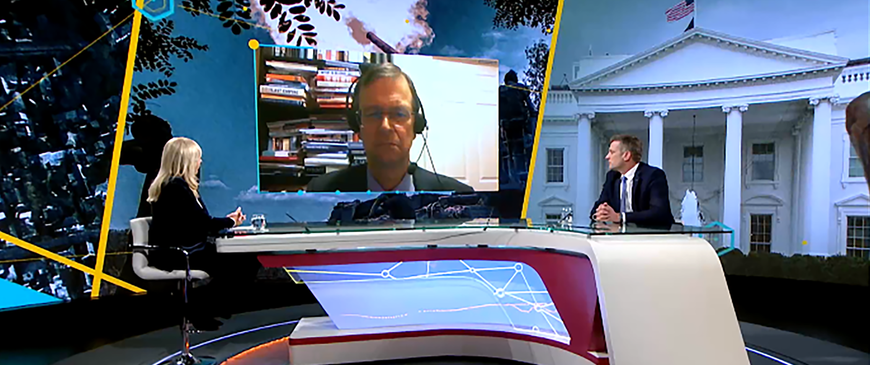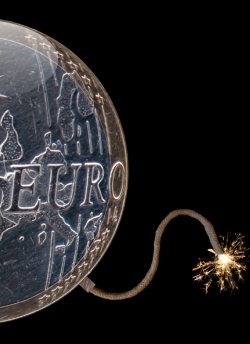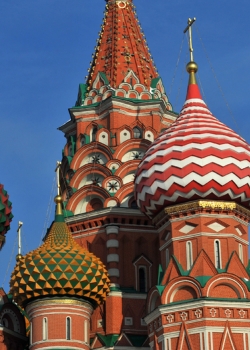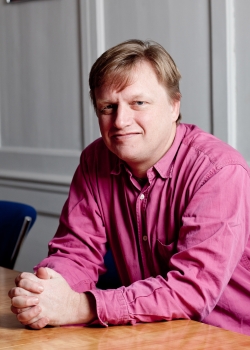Press
How eurobond would work
16 August 2011
The Wall Street Journal
"It's imperfect [the eurobond] and it would be difficult," says Simon Tilford of the Centre for European Reform, a London think tank. "But it's much less destructive, economically and politically," than watching the euro collapse, he says.
EU heading for eurobond clash amid German dread over looming fiscal union
12 August 2011
Bloomberg
"No single currency has ever survived without some form of debt mutualisation," said Simon Tilford, chief economist at the London-based Centre for European Reform, a research institute focused on European integration. "There's an increasing recognition that that is the only way of stabilising the eurozone."
EU has sanctions on Syria - so why are we buying its oil?
12 August 2011
The Scotsman
"Sanctions on the energy sector would be an obvious next step," Clara O'Donnell, of the Centre for European Reform, said. "But if there were a real interest to do that, it would probably have gone further already - the level of violence the Syrian authorities have been inflicting has been quite prolonged now and it's striking to see how slow the exploration of widening sanctions has been. Clearly, the desire of European policy makers not to damage the economic interests of some firm may be a playing a role."
La via maestra degli eurobond
10 August 2011
Il sole 24 Ore
Le debolezze istituzionali dell'eurozona sono state messe a nudo. Il tentativo di attuare una politica monetaria comune senza un Tesoro comune è fallito.
Eurobonds or bust
08 August 2011
Project Syndicate
The eurozone’s institutional weaknesses have been laid bare. The attempt to run a common monetary policy without a common treasury has failed.
A real threat of stagnation
08 August 2011
The Voice of Russia
In Europe, or in the US more particularly, we are seeing investors are losing confidence in the ability of various economies, various governments to service their debts.
Debt downgrade weakens US stature abroad
08 August 2011
NPR
"There's real fear that, given the mounting challenges facing the administration and the standoff in Congress, this could really weaken US influence and the US role in the world," says Simon Tilford, chief economist at the Centre for European Reform in London. "For most Europeans, that's not a prospect they welcome." ...If they are left holding paper of diminished value, they have only themselves to blame, argues Tilford, the economist at the Centre for European Reform. China bought U.S.
EU struggles to win influence in Middle East
06 August 2011
Daily Times [Pakistan]
"The Europeans can call for certain policy shifts which, for the moment, the Americans can't," said Clara O’Donnell of the Centre for European Reform in London. ..."The official EU position regarding engagement with the Palestinian unity government is much more compromising than the US position and there seems to be a tacit involvement from the Obama administration to encourage the Europeans to do it," said O’Donnell.
EU faces crisis of legitimacy warns former Europe minister
06 August 2011
The Independent
Simon Tilford, the chief economist at the Centre for European Reform think-tank, warned the EU was suffering a backlash from citizens and politicians worried about issues for which it stands, such as economic liberalism and movement across borders. "The EU can only work if the national governments let it work." He said he had "pressing concerns" over the Commission's effectiveness as more member-states entered into deals with individual governments rather than operating through the Commission.
Group of 7 will meet to address debt issue
05 August 2011
New York Times
"If they had agreed on those measures nine months ago it would have prevented the crisis from spiraling to this extent," said Simon Tilford, the chief economist at the Centre for European Reform in London. "But this is too little too late."
It doesn’t matter who is president of Russia
02 August 2011
Financial Times
In Moscow, the speculation about Russia’s next president is becoming tedious. Dmitry Medvedev has made it clear he would like to run again, but most people think Vladimir Putin, prime minister, will be the official candidate and win March’s election.
But does it matter whether President Medvedev continues, Mr Putin returns...
But does it matter whether President Medvedev continues, Mr Putin returns...
We are not out of the woods by a long shot
25 July 2011
Irish Independent
"The single biggest mistake by Europe was the decision to impose budget targets on Ireland, Greece and Portugal that were impossible to meet," said Simon Tilford, chief economist with London-based think-tank the Centre for European Reform (CER). "The economics of those budget targets were nonsensical. To meet those targets, all three countries have had to cut public spending by unprecedented amounts -- but this hasn't put those countries back on a sustainable fiscal path.
Britain wants tighter eurozone – without Britain
24 July 2011
Financial Times
"There's a danger that if nearly all heads of government meet without Britain to discuss economic questions, Britain's liberal voice will be absent," says Charles Grant, director of the Centre for European Reform.
Bailout fatigue in the eurozone
22 July 2011
The Australian
Analysts including Charles Grant of the Centre for European Reform think-tank have suggested Greece is economically too weak to sustain euro membership.
They agree on peat bogs
21 July 2011
The Economist
Barack Obama's "reset" with Russia smooths things for Germany, and resets in Polish-German and Polish-Russian relations make "a huge difference," says Katinka Barysch of the Centre for European Reform, a think-tank.
Beyond Greece, Europe fears financial contagion in Italy and Spain
19 July 2011
New York Times
"To see those yields on highly developed countries like Italy jump so fast has really focused minds," said Simon Tilford, chief economist for the Centre for European Reform in London. "Merkel is now in a very difficult position The Germans are now alive to the risk in ways they weren't before. For all the derision about Silvio Berlusconi, Italy is core Europe and has very strong ties to Germany and France."
Eurozone exit could restore Greek competitiveness
17 July 2011
Financial Times
"Short of the eurozone agreeing a fully-fledged transfer union, it is hard to see how Greece can remain in the eurozone," says Simon Tilford, chief economist at the Centre for European Reform think-tank. "Leaving would be fraught with risk but at least it would hold out the possibility of economic growth and escape from the current debt trap."
Europe in Blunderland
16 July 2011
Hindustan Times
"The structural reforms were necessary but not sufficient — with no plans to boost growth, the debt situation worsened," said Charles Grant, director of the Centre for European Reform. "Greece needs a Marshall Plan to encourage growth." Public opinion in debt-ridden European economies, according to Grant, is becoming a "new and dangerous" factor.
European leaders take aim at rating agencies
13 July 2011
The Prague Post
"There is no doubt the rating agencies were wrong in 2008," said Simon Tilford, chief economist with the Centre for European Reform in London. "But now the agencies are doing the eurozone a favor by exposing the unsustainability of these plans moving forward. If a private-sector one emerges, great," Tilford said. "But if we are talking about a rating agency funded with public money, it will have no more credibility than a rating issued by the Chinese government."
Austria to ban import of nuclear fuelled energy
13 July 2011
The Prague Post
"Renewables are the best form of electricity, but it will probably take the EU a long time - several decades - to be 100 per cent reliant on renewables," said Stephen Tindale, an associate fellow at the Centre for European Reform in London. "Before then, we need a low carbon bridge to get [away] from dependence on oil and coal. My advice to the Czech government would be to continue to use nuclear, because it is a low carbon source for significant amounts of electricity Germany is supposed to reach 18 per cent of total energy from renewables by 2020 based on EU targets.

